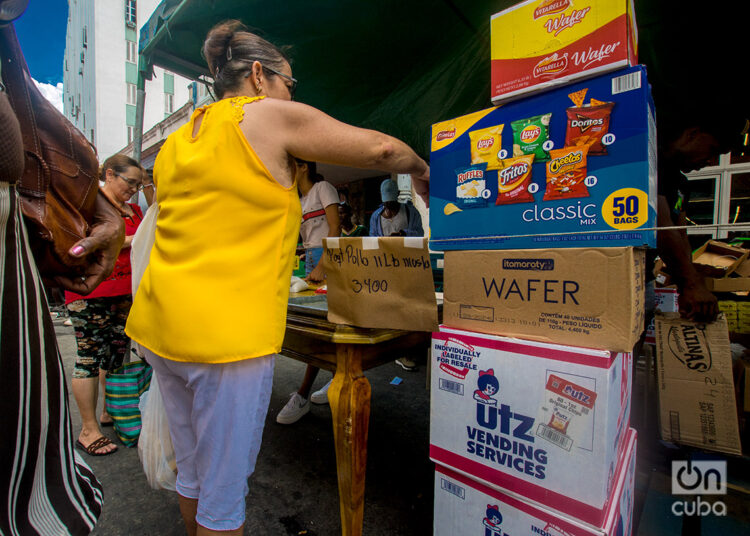A few days ago, the Cuban government confirmed it would not stop its offensive against what it calls “economic distortions” and, with that intention, it has redoubled inspections and fines for private businesses and other economic actors.
According to the Ministry of Finance and Prices (MFP), this weekend “joint and comprehensive actions for price control, tax payment and the process of bancarization” were carried out throughout the island, not only in the private sector but also in state entities.
Vladimir Regueiro Ale, minister of that portfolio, explained to the Agencia Cubana de Noticias (ACN) news agency that the inspections are directed by local governments and specialists from the MFP, the National Tax Administration Office (ONAT), the Comprehensive Supervision Departments (DIS) and “as many institutions as can provide inspectors” participate in them.
The minister assured that these exercises have a “favorable reception in the population,” and specified that while carrying them out “violations or infractions are detected, which lead to the imposition of high fines, closure of businesses or other measures.”
Regueiro Ale defended the inspections because they are directed against “the distortions that we must correct on the ground, in order to contain inflation.”
Compliance with the price cap established last July for a group of products, the profit margin existing in State purchases from private actors, tax evasion, and the possibility of online payments are among the issues audited by State inspectors.
As part of these actions, the head of the MFP considered “essential” the “support of the population” against illegalities, and called on people to report “wherever there are abusive prices, hidden products or the money is paid into personal accounts and not into fiscal accounts.”
In Santa Clara
An example of the government crusade this weekend, despite the rains of Tropical Storm Debbie, occurred in Santa Clara. There, state inspectors detected “infractions” in 87 of the 95 economic actors inspected, 49 of which violated the price cap.
A Facebook post by the Inspection Department of the capital of Villa Clara confirmed the detection of “violations” in all the People’s Councils of the municipality and the imposition of fines for different criteria, including “deceiving the consumer or altering price,” “withholding products” and “applying abusive prices.”
The amounts of the fines, according to the entity, amounted to 8,000 pesos, while “23 forced sales were applied at fixed prices.”
A second post, on inspections applied at agricultural fairs, reported more fines, which “ranged between 4,000 and 10,000 pesos according to the violation,” while “10 forced sales were applied as accessory measures.”
Last month, the Cuban government reported that it imposed fines of 30 million pesos in just five days against an undetermined number of private enterprises for failing to comply with the price cap on six basic products, including chicken and powdered milk.
This cap, imposed at the beginning of July, can be “updated” by the island’s authorities and also applied to other goods, as established by resolution 225 of the MFP.










